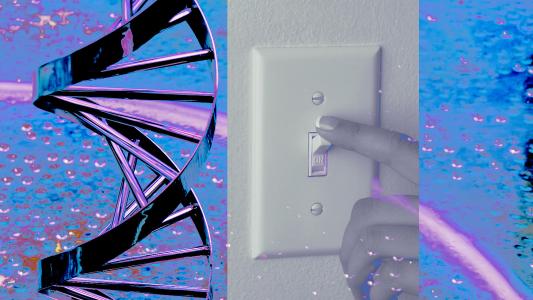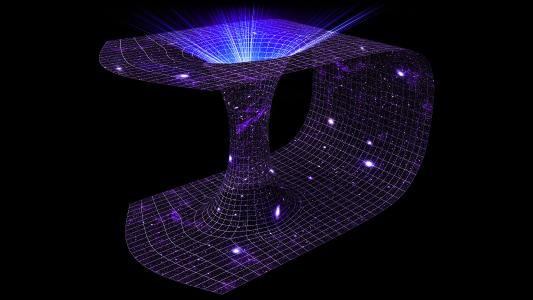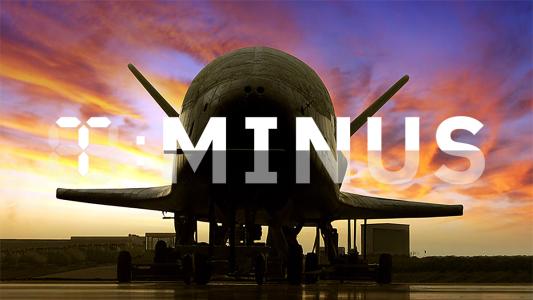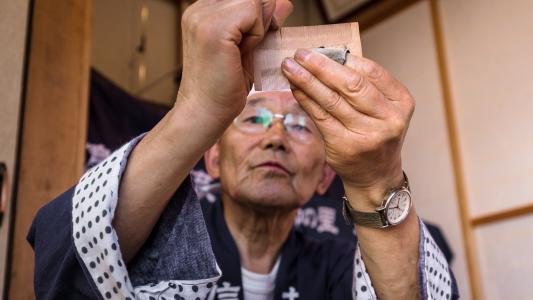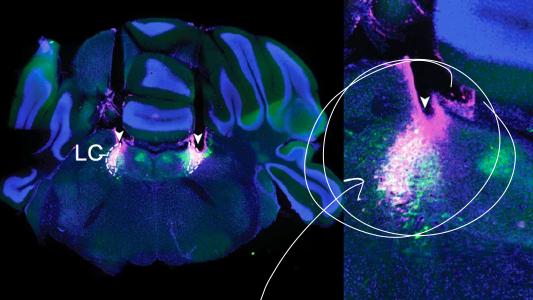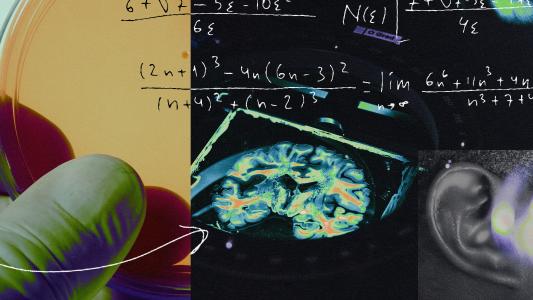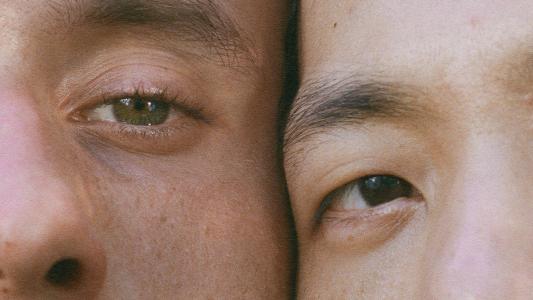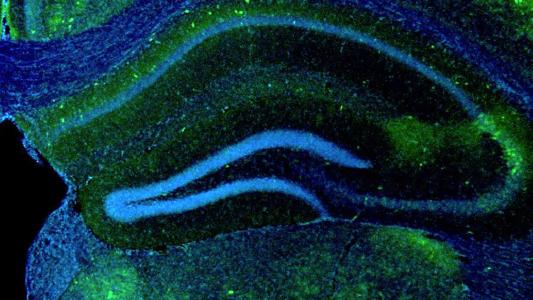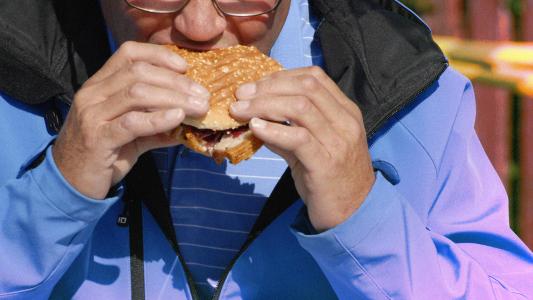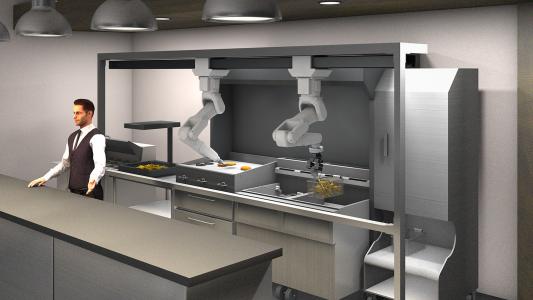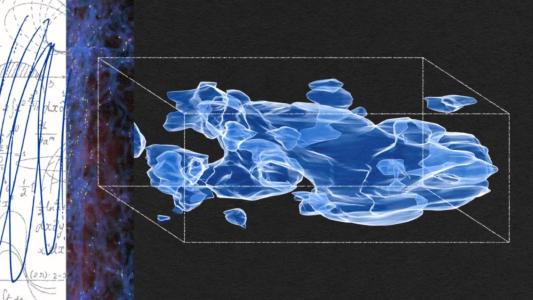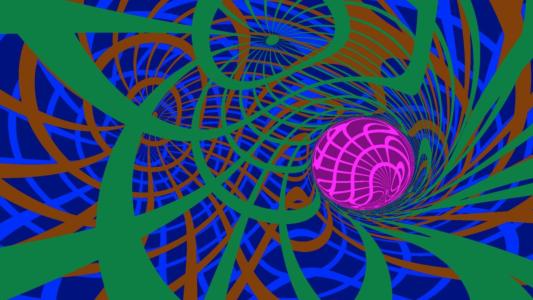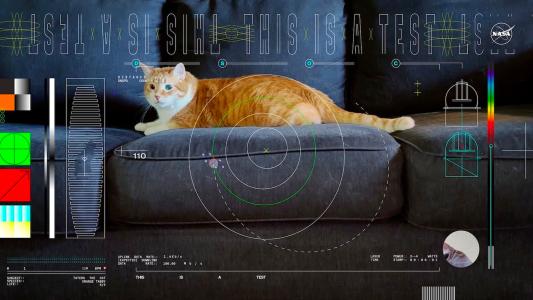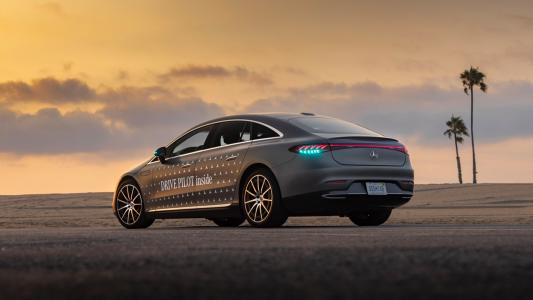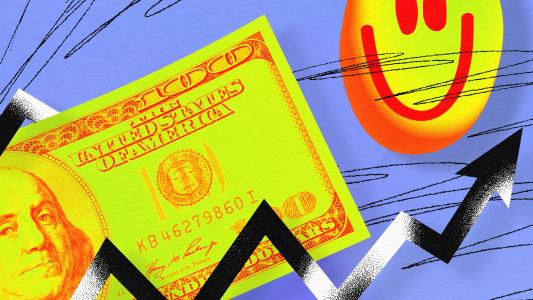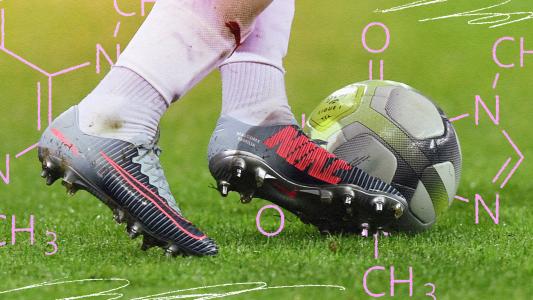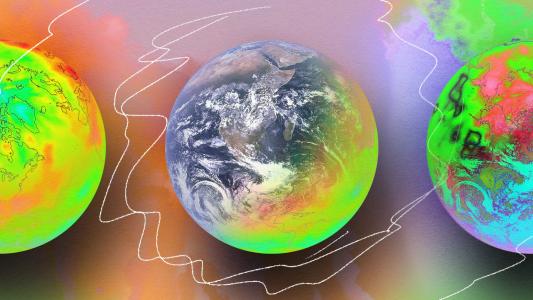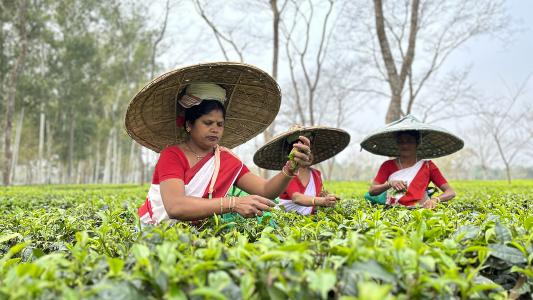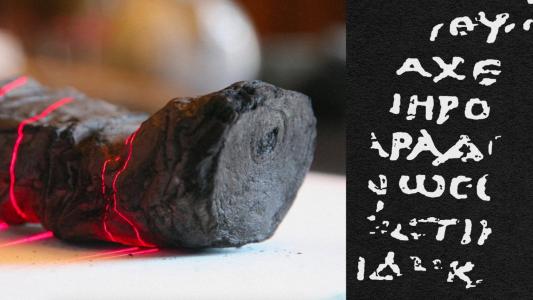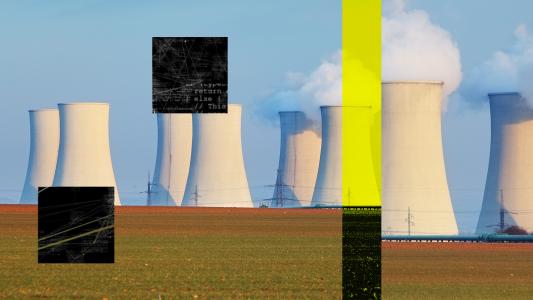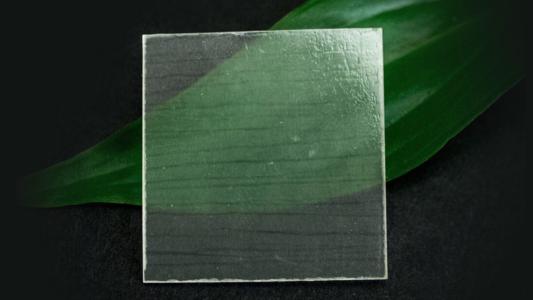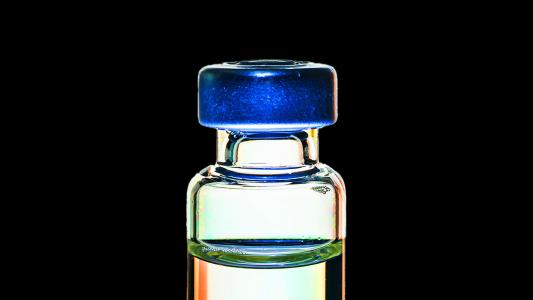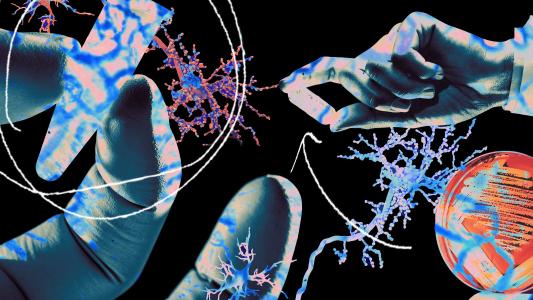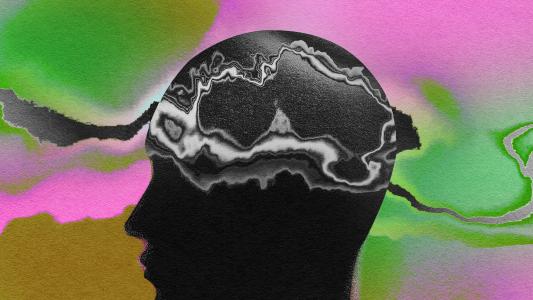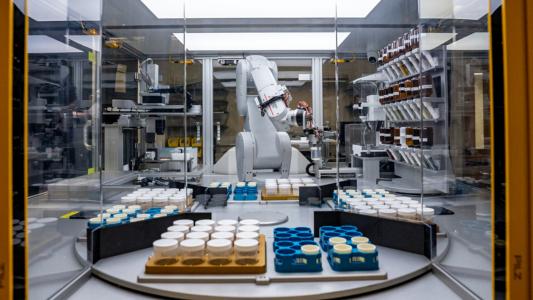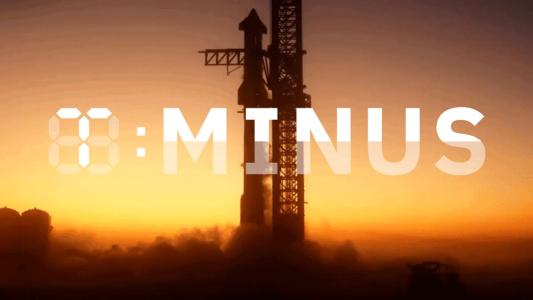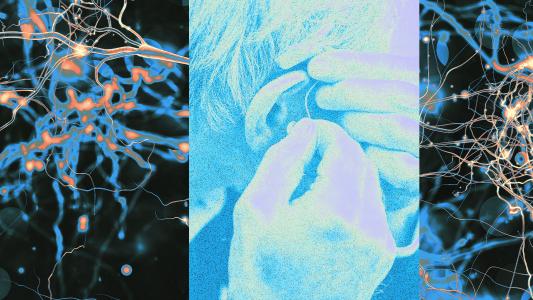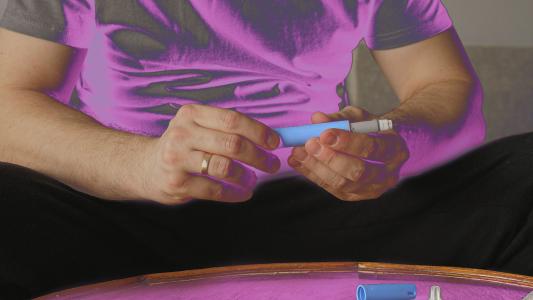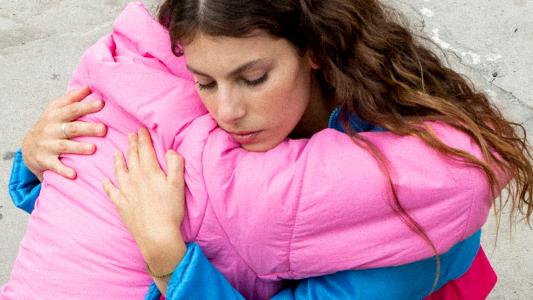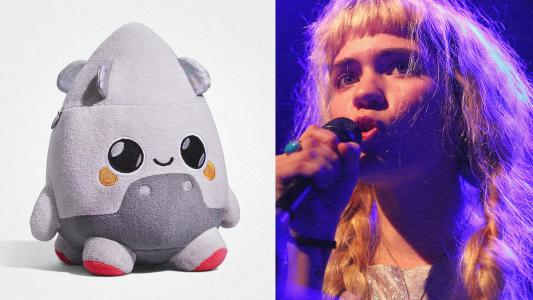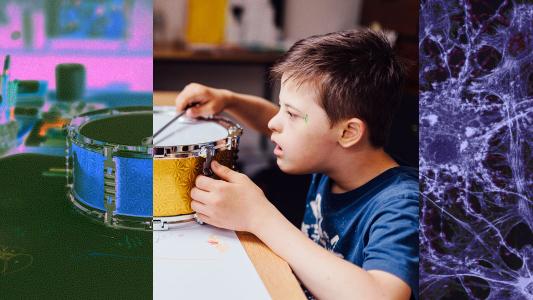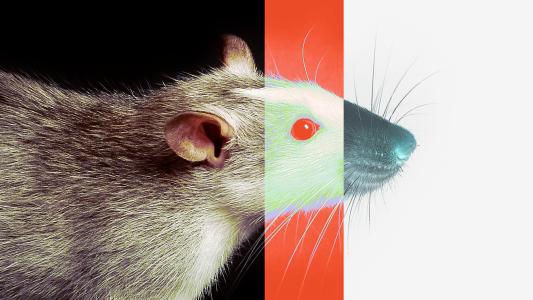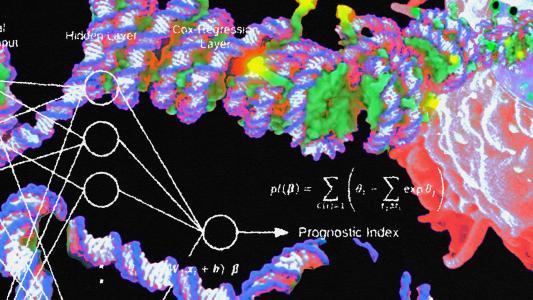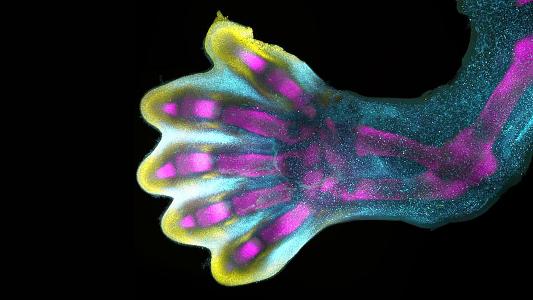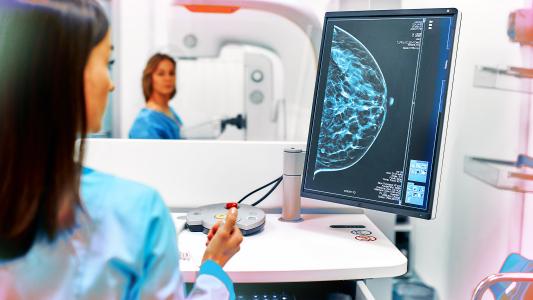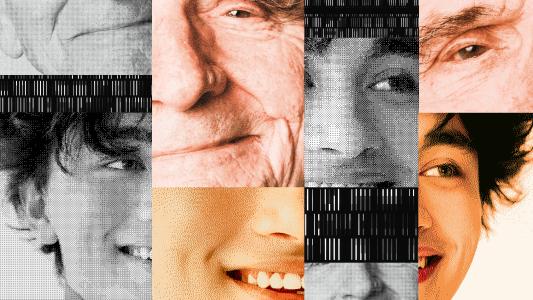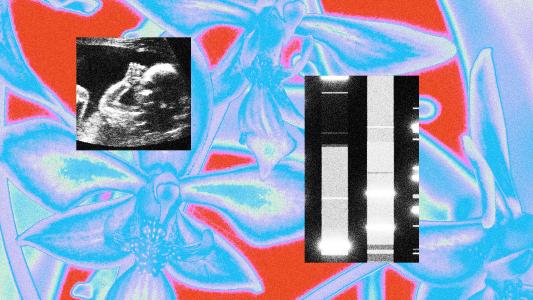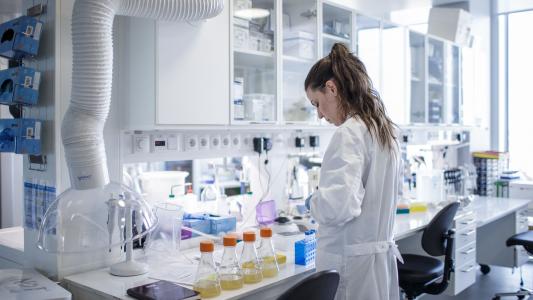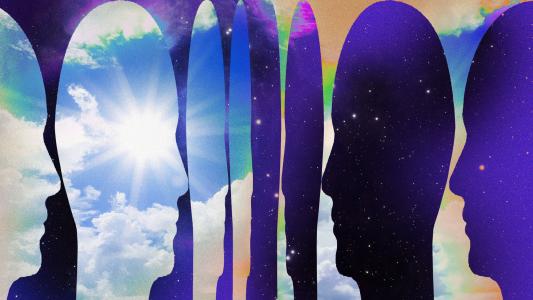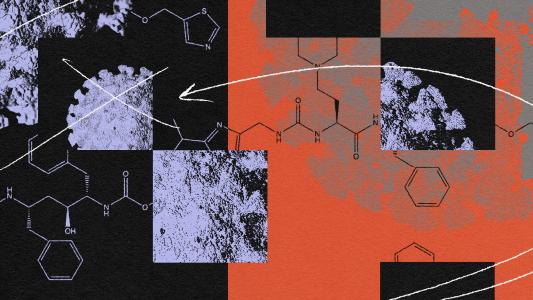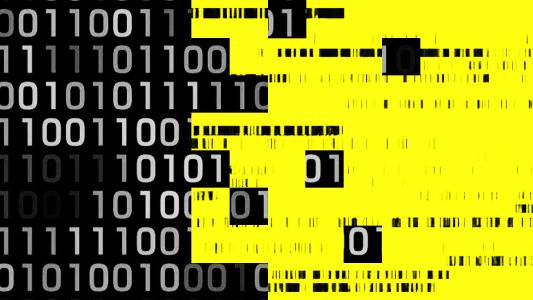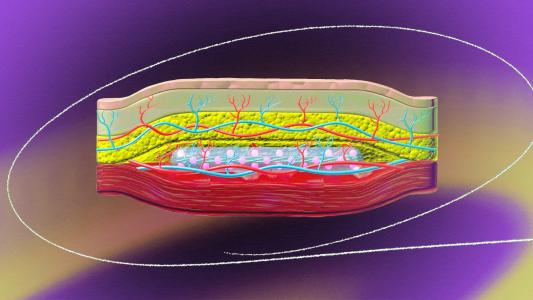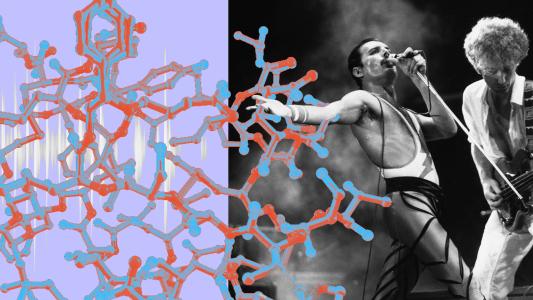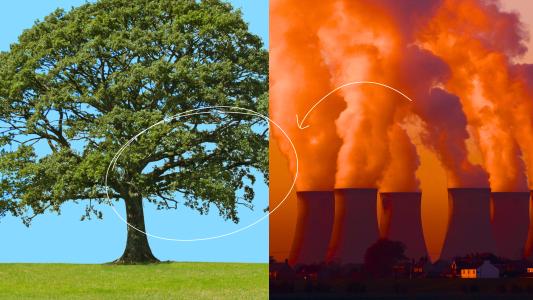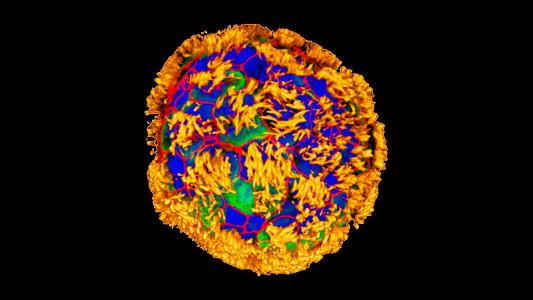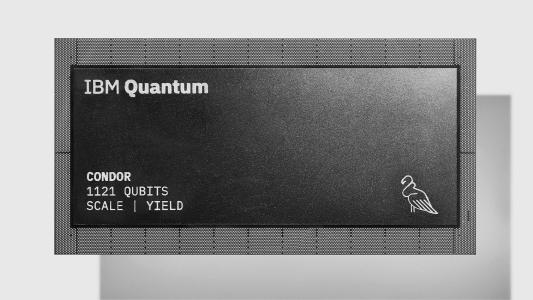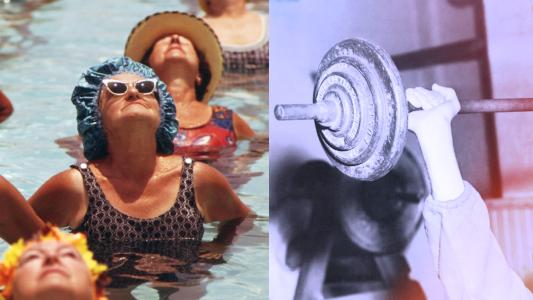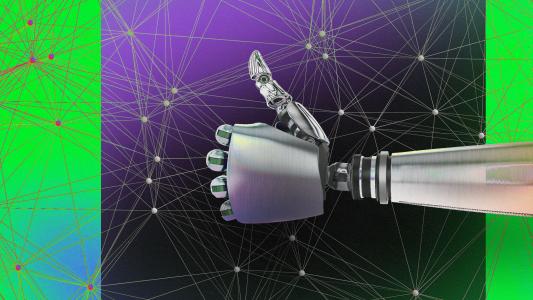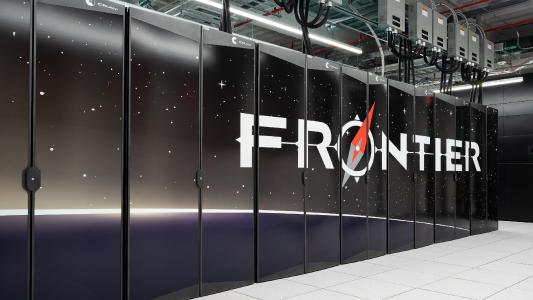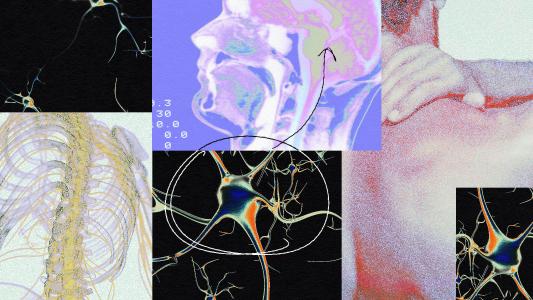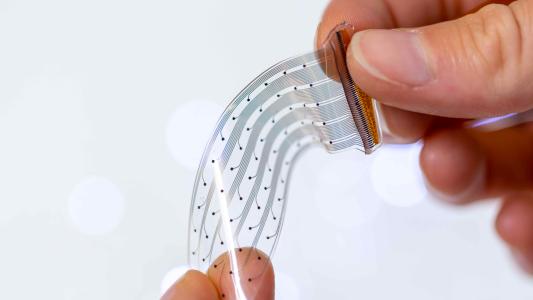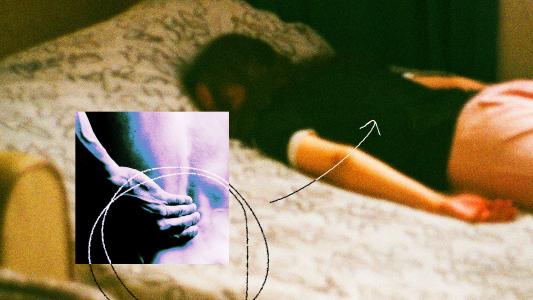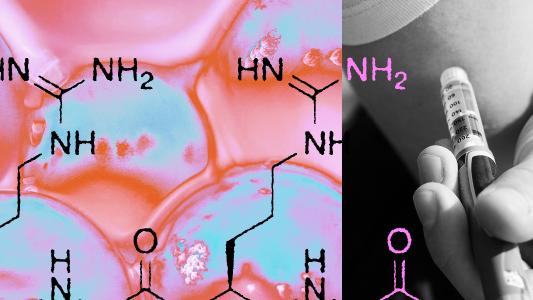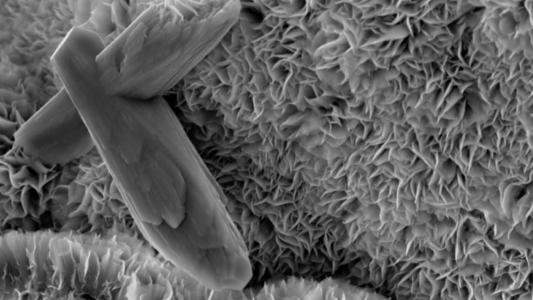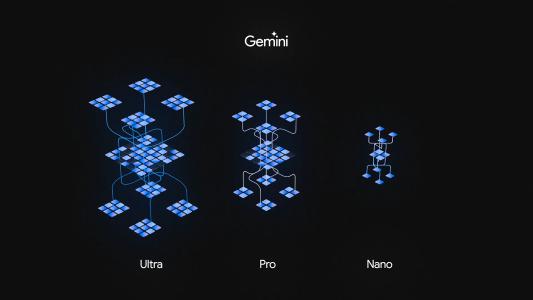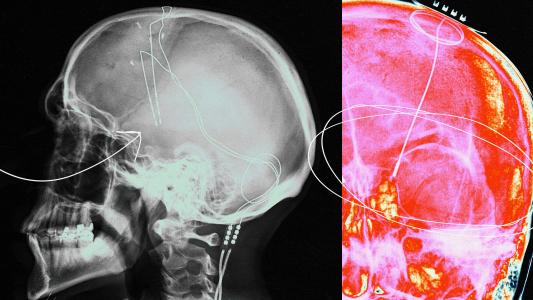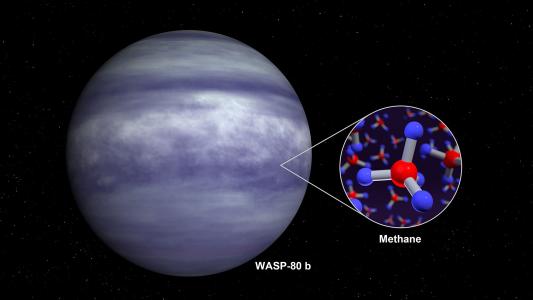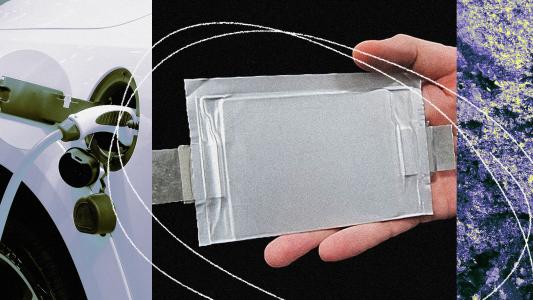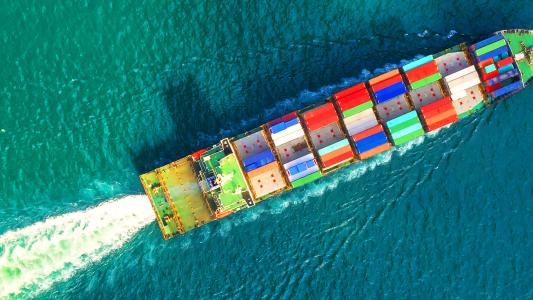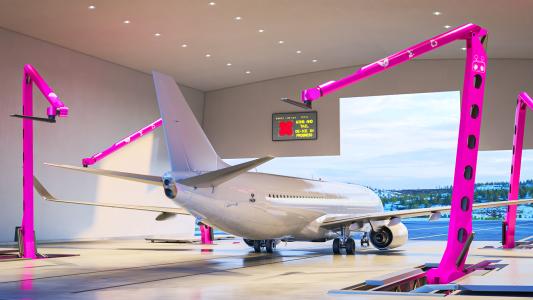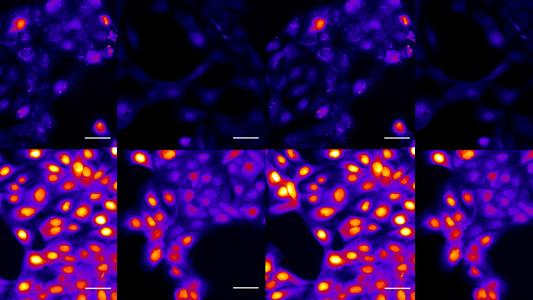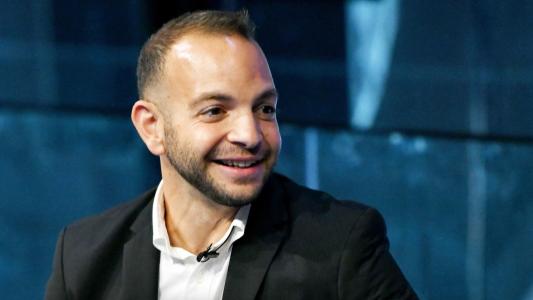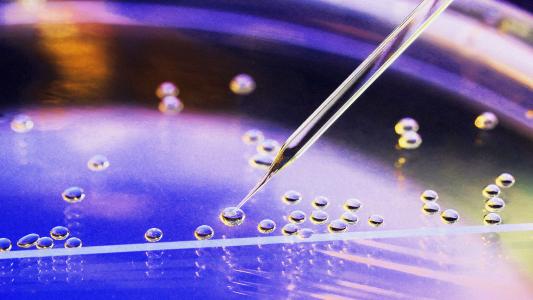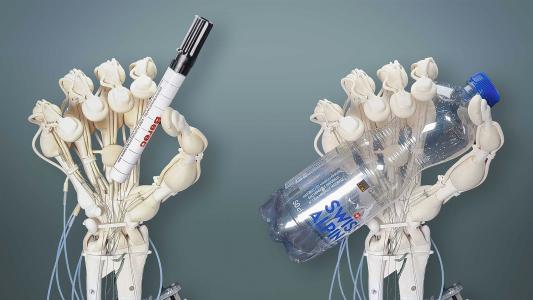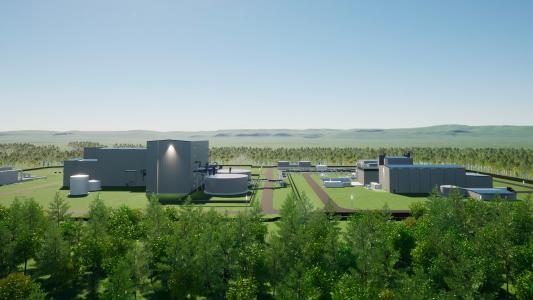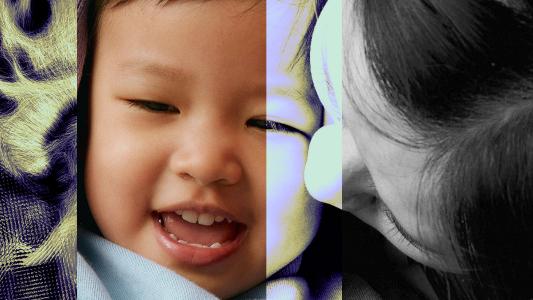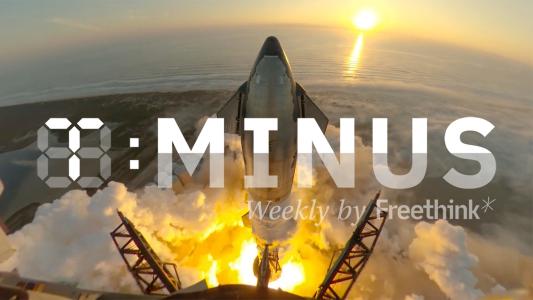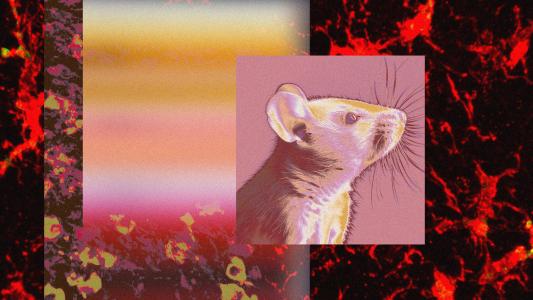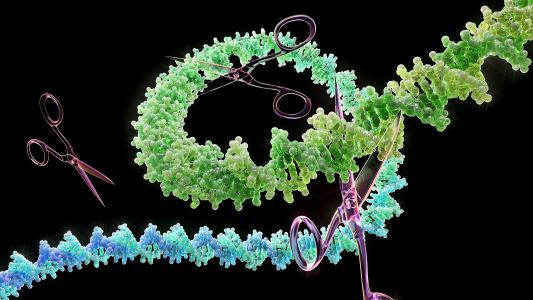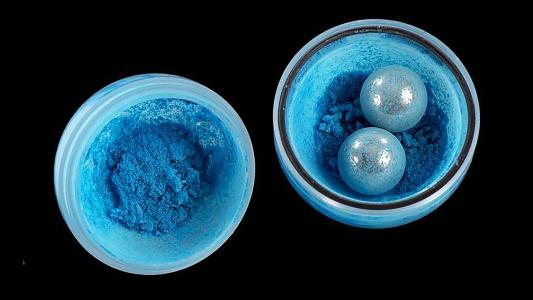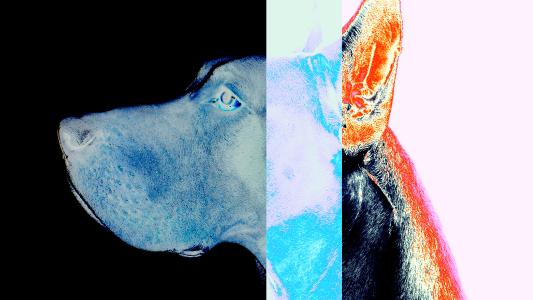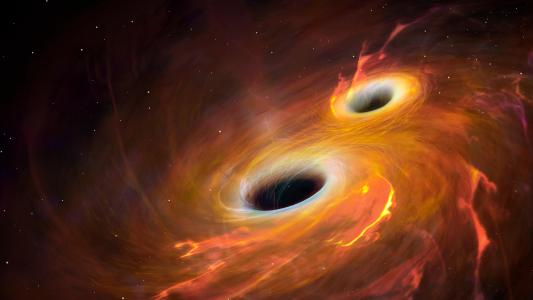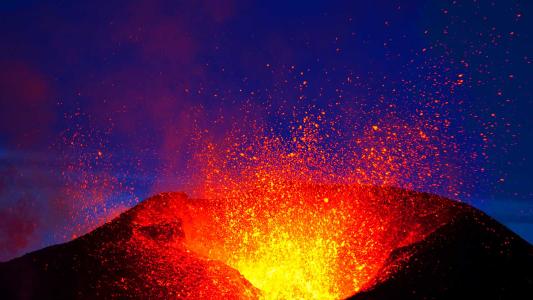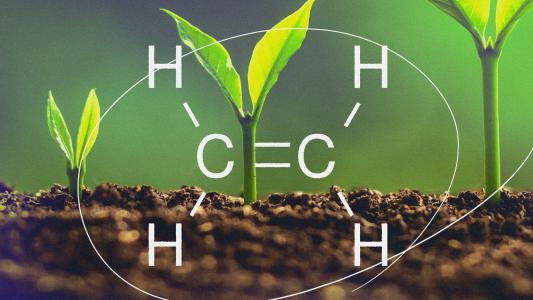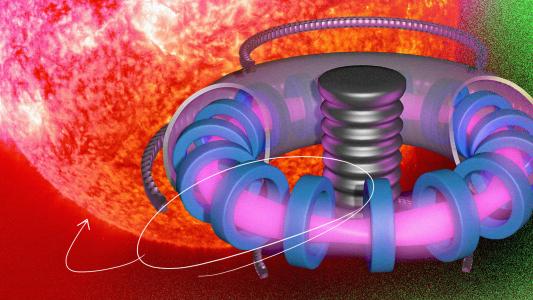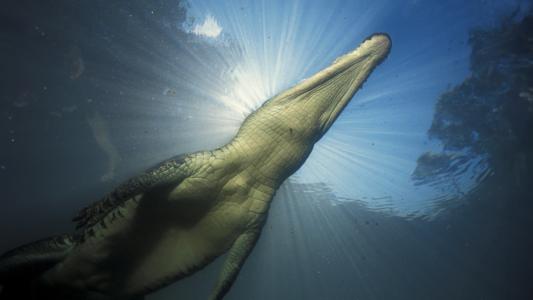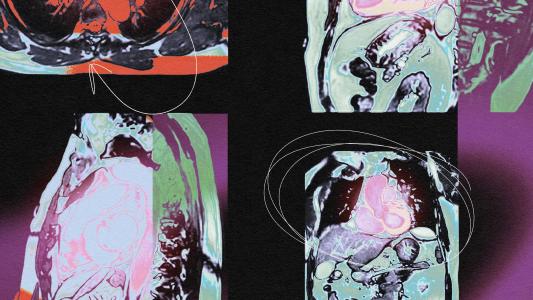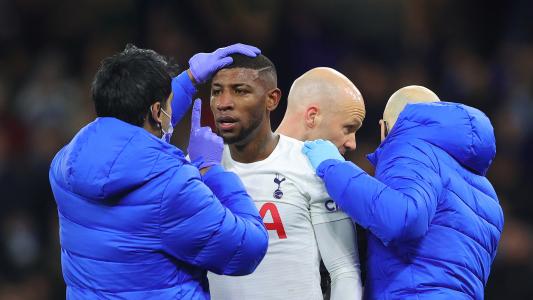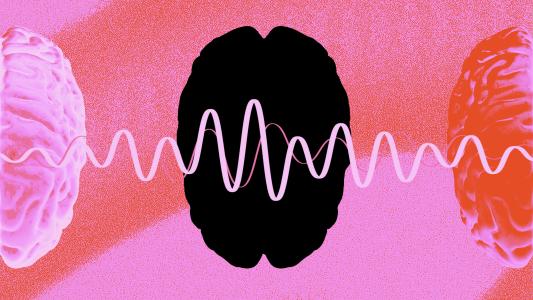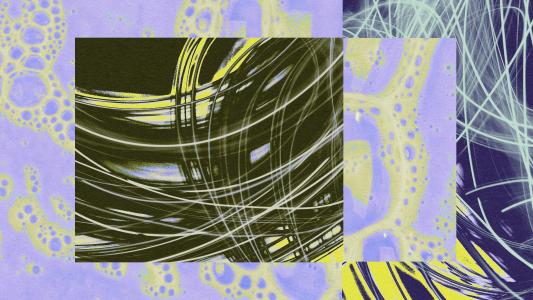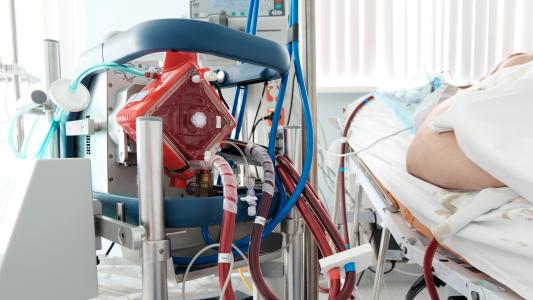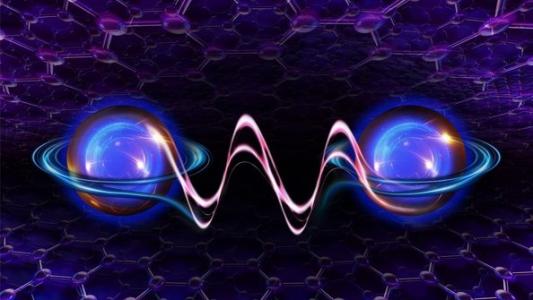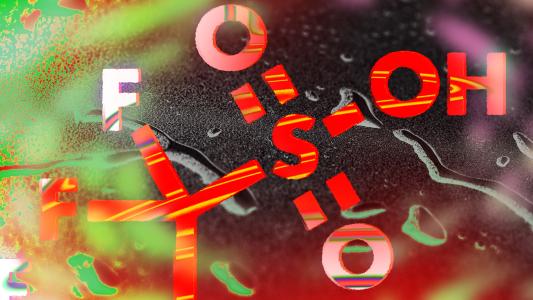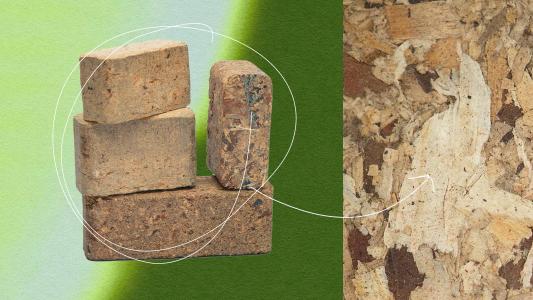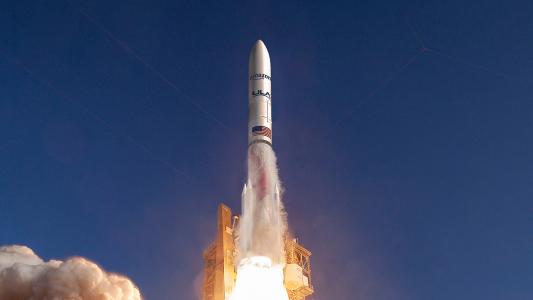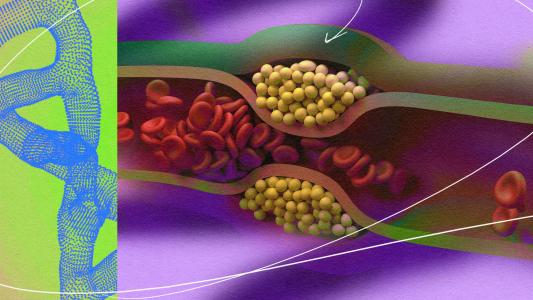New on/off switch in mRNA lets doctors “tune” gene therapy
A new kind of mRNA switch could give doctors the ability to precisely control the expression of therapeutic genes.
Google’s quantum computer suggests that wormholes are real
Until recently, wormholes were considered a mathematical curiosity, but Google's quantum computer suggests that wormholes might be real.
T-Minus: SpaceX’s spaceplane launch, Jupiter’s “pizza moon,” and more
Freethink's weekly countdown of the biggest space news, featuring SpaceX's spaceplane launch, a new image of Io, and more.
Research: inflammation and mortality may be caused by low “psychological well-being”
Researchers looked at the link between life purpose and mortality and found that people who felt they had no purpose in life tended to die earlier.
Your brain “wakes up” more than 100 times each night. That’s normal — and maybe good
Research suggests that brief, repeated “wake-ups” during sleep are completely normal, and may actually bode well for one’s memory.
Cyborg computer combining AI and human brain cells really works
A new biohybrid computer combining a “brain organoid” and a traditional AI was able to perform speech recognition.
Partnering up can help you grow as an individual – here’s why
The science makes it abundantly clear that couples with more self-expansion are better relationships. Here's why.
Bioengineered protein could enhance memory
Memory-related conditions are notoriously hard to treat, but there may be a way to boost recall in the brain.
Red meat causes heart disease. Except when it doesn’t?
The problem is not scientific consensus on red meat, but how specialists analyze risk when proffering public guidelines.
AI robots are making burgers and fries at this new restaurant
The AI robots making burgers and fries at CaliExpress could help the restaurant industry address its persistent labor shortage.
Scientists rule out a popular alternative theory to dark matter
A passionate minority deny the existence of dark matter and embrace MOND (Modified Newtonian Dynamics) to explain the observations.
“Singularities don’t exist,” claims black hole pioneer Roy Kerr
Using a powerful mathematical argument, black hole expert Roy Kerr argues that singularities shouldn't physically exist. He may be right.
NASA beams home cat video from 19 million miles away
In a history-making demonstration, NASA used invisible lasers to send a cat video to Earth from deep space.
Mercedes-Benz adds special blue lights when its self-driving cars are “on”
Mercedes-Benz has added turquoise lights to its self-driving vehicles to indicate when its autonomous driving system is engaged.
Why is the value of money for happiness increasing?
While the old adage says that money can’t buy happiness, studies have determined that the more your income increases, the happier you are.
Does caffeine harm your decision-making?
A small study showed caffeine lessens decision-making. While preliminary, it raises questions about caffeine affects our "higher" cognitive functions.
How much CO2 can the world emit while keeping warming below 1.5°C and 2°C?
Researchers estimate how much more CO2 we can emit to keep temperatures below 1.5°C and 2°C to combat climate change.
This startup wants to track soil carbon with AI and satellites
Boomitra’s remote sensing technology combines data from Earth and space to verify when carbon is coming out of the air.
Vesuvius Challenge: Can AI decipher these mysterious ancient scrolls?
Herculaneum’s Villa de Papiri contains hundreds of ancient texts that were carbonized by Mt. Vesuvius. Now, they can only be deciphered by AI.
Microsoft is training an AI to help get nuclear reactors approved
Microsoft is training an AI to generate the paperwork needed to get next-gen nuclear reactors approved by regulators.
Why scientists are making transparent wood
Stronger than plastic and tougher than glass, the transparent wood is being exploited for smartphone screens, insulated windows, and more
Moderna’s mRNA cancer vaccine works even better than thought
Adding Moderna’s mRNA cancer vaccine to a standard melanoma treatment dramatically reduces the risk of death or recurrence.
The 5 most exciting clinical trial results of 2023
In 2023, several potentially game-changing meds, including ones to treat pain and high cholesterol, showed huge promise in human trials.
Chemobrain is real. Here’s what to expect after cancer treatment.
Chemobrain, or chemofog, can significantly affect cancer survivors' quality of life with its social, psychological, and economic impacts.
Watch amazing Meta AI translate language in near real-time
Meta has unveiled Seamless, a language translation AI that can quickly translate speech while preserving the original tone and emotion.
Google AI discovers 2.2 million new materials for a host of technologies
Google's AI GNoME has predicted 2.2 million novel inorganic crystal structures. If synthesized in labs, they may pave the way for new technologies.
T-Minus: Counting down the 10 greatest space stories of 2023
Freethink's countdown of the biggest space news of 2023, featuring major rocket launches, groundbreaking astronomy discoveries, and more.
Deep neural networks show promise as models of human hearing
In the largest study yet of deep neural networks trained to perform auditory tasks, researchers found surprising similarities to human hearing.
Professor Giles Yeo on making sense of anti-obesity drugs
Anti-obesity drugs have been in the news, and for good reason; they seem to work. Giles Yeo talks us through some misconceptions at play.
How can we transform the mental health care system for today’s youth?
In partnership with UNICEF
The mental wellbeing of children and young people is at the forefront of mind - and UNICEF and partners have a design plan to strengthen healthcare systems to meet the demand.
AI chatbots are coming to your workplace but are not necessarily coming for your job
AI chatbots might not be coming for your job after all, but AI fluency, the skill to understand and work with AI, will soon be essential.
The AI behind ChatGPT is bringing this toy to life
Pop artist Grimes and Silicon Valley startup Curio have created an AI toy that can understand and talk to kids.
How music therapy benefits the autistic brain
While the benefits of music therapy are well known, more in-depth research explores how music benefits children with autism.
Light may cause water to evaporate (even without heat)
MIT researchers propose a new phenomenon that causes to water evaporate without heat. They call it the “photomolecular effect.”
Mice could someday become venomous, suggests study on the evolution of oral venom systems
Although scientists have a good understanding of the composition of snake venom, little is understood about the origins of venom systems.
New AI predicts cancer survival using epigenetics
Researchers from the UCLA train an AI to use epigenetics to predict clinical outcomes for cancer patients.
Stunning video reveals how our fingers form in the womb
A first-of-its-kind map of human limb development could help prevent a common type of birth defect in the future.
Walmart now has mammograms, analyzed with AI
Shoppers can now get mammograms at a Walmart in Delaware — and more of the walk-in clinics are set to open in 2024.
Untangling the genetics that underlie our facial features
Hundreds, if not thousands, of genes affect the shape of the face, in subtle ways. Researchers explain why, and how, we look like our family.
Startup can now screen IVF embryos for 1000+ diseases
Startup Orchid now offers whole genome sequencing for embryos used during IVF — but not everyone is convinced it’s worth the cost.
World’s first “self-amplifying” vaccine approved in Japan
The approval of the first saRNA vaccine could signal a new era in how we prevent and treat everything from infections to cancer.
Your “circadian rhythm peak” can affect your mental performance
What’s your chronotype? Knowing whether you’re a night owl or an early bird could help you do better on tests and even avoid scams.
HIV drug shows promise against COVID-19 and MERS
Based on promising lab tests, the HIV drug cobicistat could be an effective antiviral treatment for COVID-19.
What does the future hold for generative AI?
Rodney Brooks, co-founder of iRobot, kicks off a symposium on the promise and pitfalls of increasingly powerful AI tools like ChatGPT.
T-Minus: Missing space tomato found, a stellar remnant revealed, and more
Freethink's weekly countdown of the biggest space news, featuring NASA's missing space tomato, Webb's new stellar remnant image, and more.
Why do women live longer than men?
Women tend to live longer than men around the world – but the gap life expectancy is not a constant. These stats tell the story.
Experimental implant could end the need for insulin injections
An arm implant containing islet cells could one day make it far easier for people with type 1 diabetes to manage their disease.
Researchers engineer insulin-releasing cells that respond to sound waves
New research in mice attempts to eventually replace insulin injections with the sounds waves of rock music.
Plants are likely to absorb more CO₂ in a changing climate than we thought – here’s why
New research shows that plants might take up more CO₂ than previously thought, but still can't do the heavy lifting to stop climate change.
Tiny biobots surprise their creators by healing wound
Tiny “biobots” made from human windpipe cells, amazingly, helped damaged neural tissue to repair itself in a new study.
IBM unveils world’s largest quantum chip
Tech giant IBM is pushing the field of quantum computing forward with Condor, the world's largest quantum chip.
These 2 types of exercise can improve brain health in your 80s, new study finds
Older people who regularly engage in aerobics and strength training perform better on cognitive tests.
Suckup software: How sycophancy threatens the future of AI
The biggest problem with AI right now might not be it defying humans but bending its answers to make us happy.
This startup is solving the biggest problem to creating drugs that work
Lab-grown human tissues could revolutionize drug development. This AI-powered robot can create and test 10,000 of them at once.
Supercomputer uses machine learning to set new speed record
Frontier, the ORNL supercomputer, used machine learning to set a new speed record of 9.95 quintillion calculations per second.
This global prize competition is launching small moonshots to save the planet
Prince William’s “Earthshot” strategy hopes to hedge humanity’s bet and tackle multiple environmental crises.
Study: chronic pain’s root cause could be a process in the brain
Understanding that chronic back pain originates from within the brain could lead to quicker recovery, a new study finds.
T-Minus: A river of stars, NASA’s next moon landing, and more
Freethink's weekly countdown of the biggest space news, featuring a newly discovered stellar stream, NASA's next moon mission, and more.
Neurosoft CEO says new brain implant is “basically 1,000 times softer” than anything on the market
Swiss startup Neurosoft’s flexible brain implant could give us a better way to analyze and stimulate the brain.
Bad sleep worsens pain. Researchers may have discovered why.
Inadequate sleep worsens pain, which makes it difficult to sleep. This cycle may stem from disruptions to the body's endocannabinoid system.
A new hydrogel offers the hope of ending daily injections for diabetes
Type-2 diabetes often involves an intense and exhausting treatment burden, with many injections over many days. That might be set to change.
A mineral produced by plate tectonics has a global cooling effect, study finds
Geologists have found that tectonic activity gives rise to smectite, a type of clay that can sequester a surprising amount of organic carbon.
Google’s new Gemini AI beats GPT-4 in 30 of 32 tests
Tech giant Google has unveiled the multimodal Gemini AI, its “largest and most capable” AI model ever released.
Zapping injured brains can improve cognition and memory
The lasting symptoms of a traumatic brain injury (TBI) can be treated with deep brain stimulation, according to a first-of-its kind trial.
NASA’s Webb telescope finds methane in far-off “warm Jupiter”
Astronomers have spotted methane — a molecule linked to the presence of life — in the atmosphere of a “warm Jupiter” exoplanet.
Move over, agony aunt: study finds ChatGPT gives better advice than professional columnists
Researcher found that people preferred the AI-generated responses over those given by a professional advice columnist, and couldn't tell which was which.
Toshiba unveils new fast-charging, cobalt-free battery
Toshiba has developed a new kind of cobalt-free battery that could lead to cheaper, more sustainable EVs in the future.
Green shipping picks up speed
The shipping industry aims to get to net-zero emissions by 2050. Can novel fuels, wind power and coordination on a global scale get it there?
World’s largest robots will help airlines cut carbon emissions
Norwegian startup Avinxt is building massive AI robots to help airlines reduce their emissions, save water, and inspect their planes.
Lidocaine makes cancer cells self-destruct, study finds
Lidocaine, a common local anesthetic, activates proteins that cause certain types of cancer cells to self-destruct.
Technology expert tells us why the AI “doomer” narrative is all wrong
Alex Kantrowitz believes “doomerism” is born of our misplaced and exaggerated human propensity for fear. Plus, fear sells.
Stem cell injections could be the key to curing MS
From promising stem cell therapies to EBV vaccines, researchers are closer than ever to finding a cure for MS.
New 3D printing technique creates life-like robots
A new 3D-printing technique, vision-controlled-jetting, can be used to create a robotic hand, complete with bones, ligaments, and tendons.
How TerraPower is leading the nuclear renaissance
Bill Gates’ TerraPower startup is building a next-generation nuclear power plant that could revive the declining industry.
How language and social status change the developing brain
Research shows that a child's early environment and socioeconomic status (SES) impact their language development and processing skills.
T-Minus: Starship’s big flight, an alien-hunter’s gift, and more
Freethink's weekly countdown of the biggest space news, featuring Starship's second test flight, a new "dark mysteries" telescope, and more.
Cholesterol drug suggests new way to treat Alzheimer’s
A cholesterol drug that reduced brain damage in mice could reveal a new approach to treating Alzheimer’s disease in people.
Search algorithm reveals nearly 200 new kinds of CRISPR systems
Researchers have discovered rare new CRISPR systems that have a range of functions and could enable gene editing, diagnostics, and more.
A new study reveals we can no longer tell AI-generated faces from real human faces
Looking at a face without a life.
Biggest science prize in history aims to extend human healthspan by a decade
Do humans have an ethical obligation to “die young”? Maybe not in the way you think, says bioethicist Raiany Romanni.
Grinding scientists: Mechanochemistry could revolutionize the creation of new materials
Like a kitchen mortar and pestle, mechanochemistry harnesses ball milling to create chemical compounds, simpler, and faster than traditional methods.
First anti-aging drug for dogs nears approval
The FDA is a major step closer to approving biotech company Loyal's LOY-001, the first anti-aging drug for dogs.
Do gravitational waves exhibit wave-particle duality?
One of the incredible revolutions of quantum mechanics is wave-particle duality: all fundamental quanta exhibit both wave-like and particle-like behavior.
Volcanic Iceland is rumbling again as magma rises
Volcanic eruptions in this region of Iceland tend to flow rather than being explosive, as residents have already experienced. A geologist explains.
Exposing plants to an unusual chemical early on may bolster their growth and help feed the world
"Priming" plants by exposing them to certain chemicals while they’re seeds can affect their growth later in life.
Pursuing fusion power
Many researchers now believe that within the next few decades, power plants will provide carbon-free electricity from thermonuclear fusion.
Australia’s 30-year quest to unlock an ancient painkiller
A crocodile attack led to a 30-year partnership to develop a painkiller based on the Nyikina Mangala people's traditional knowledge.
Experimental drug cuts heart disease risk factor by 96%
Eli Lilly’s experimental drug lepodisiran reduced blood levels of lipoprotein(a) by up to 96% in a small trial.
Human brains have a remarkable ability to rewire themselves following injury
Every brain injury is unique, as is every person’s path to recovery. A concussion specialist explains the science behind rehabilitation and recovery.
New brain decoder system offers hope for communicating by thought alone
Is this another step towards telepathy?
Soap bubble discovery could lead to better EV batteries
A connection between soap bubbles and lithium-metal batteries could get them out of the lab and into our electric vehicles (EVs).
GPT-4 is able to buy stuff on Amazon, researchers say
AI researchers successfully trained a GPT-4-based agent, dubbed the MM-Navigator, to “buy” products on Amazon.
How do researchers study the prevalence of mental illnesses?
Data on mental health is essential to understand the scale of mental illnesses. How do researchers collect this data, and is it reliable?
A new machine is able to keep the brain alive without a heart
A new device that lets scientists precisely control the brain's blood supply could lead to new neuroscience breakthroughs.
MIT physicists turn pencil lead into “gold”
MIT physicists have metaphorically turned graphite, or pencil lead, into gold by isolating five ultrathin flakes.
New ultrasonic technique can destroy toxic “forever chemicals”
We can now use an ultrasonic jackhammer to break apart chemicals
How these wooden blocks could stop climate change
Bill Gates-backed startup Graphyte has unveiled Carbon Casting, carbon removal tech it says is cheap, scalable, and durable.
What is brown noise? Can this latest TikTok trend really help you sleep?
Brown noise, the better-known white noise, and even pink noise are all sonic hues. But do any of them actually work?
Amazon’s satellites ace first tests in space
Amazon’s Project Kuiper prototypes have aced their first tests in space, putting the company a major step closer to competing with Starlink.
One dose CRISPR therapy cuts cholesterol by up to 55%
A CRISPR-based cholesterol treatment reduced “bad” cholesterol levels by up to 55% in a small first trial.
